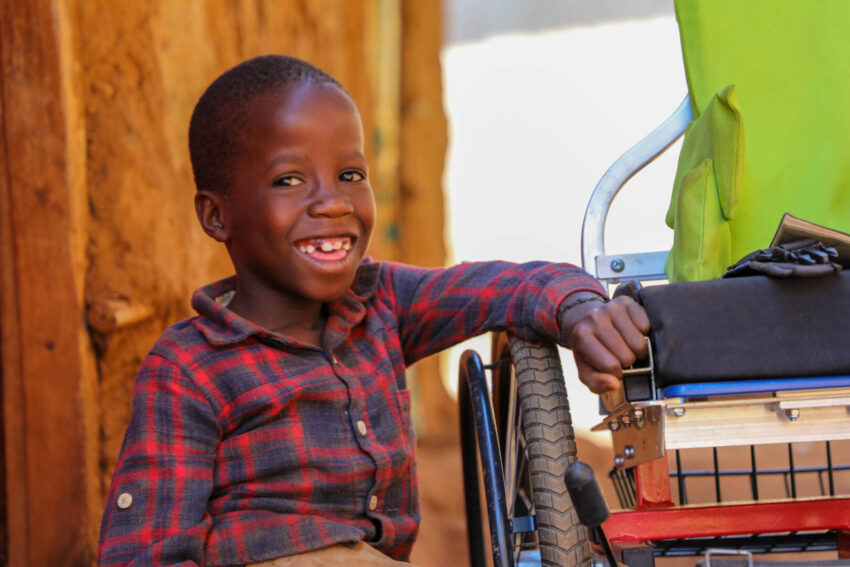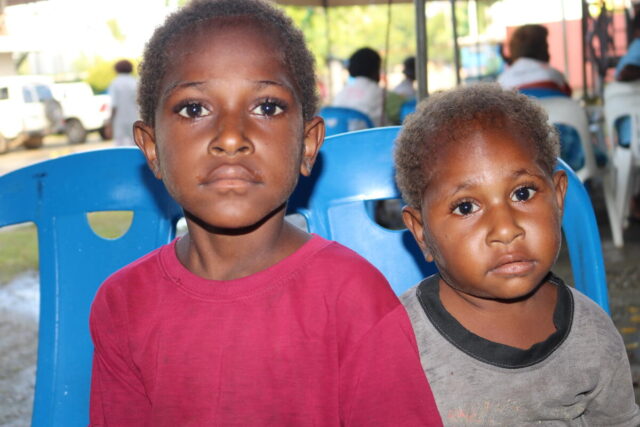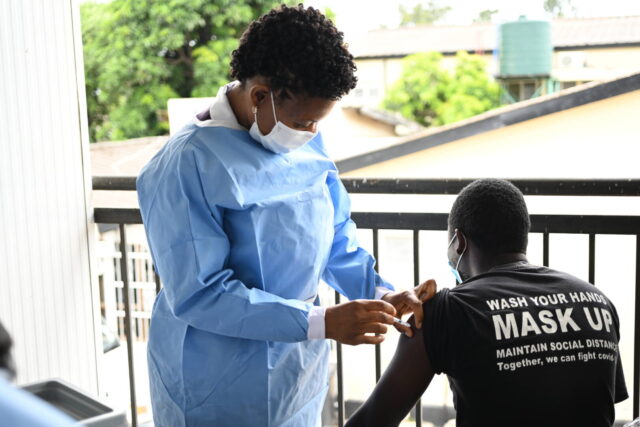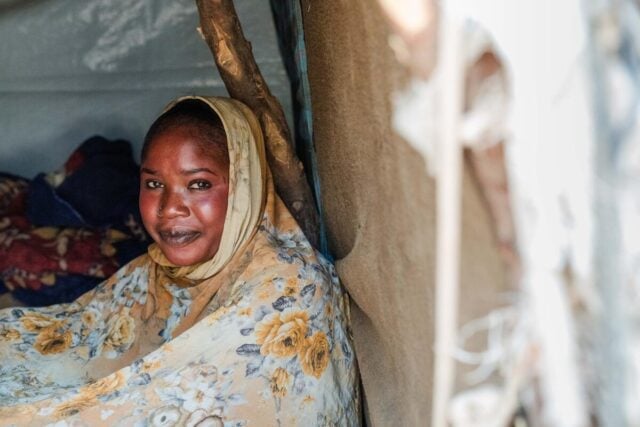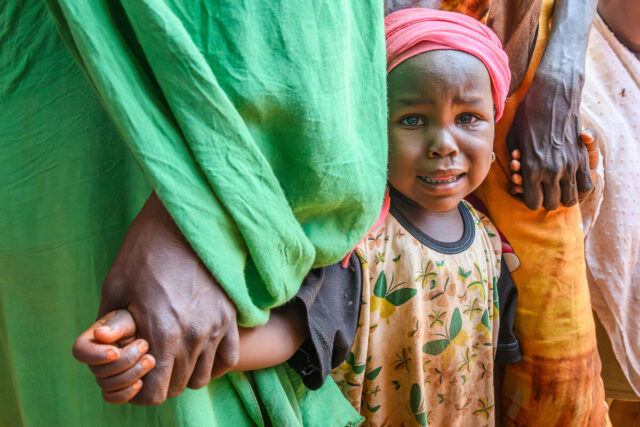“I expected to have a normal delivery,” shares Florence, a 34-year-old mother in Uganda, reflecting on her pregnancy.
Many soon-to-be mothers do. But for Florence, an emergency surgery halted her prospect of a straightforward birth. “When the doctor told me about surgery, my hopes turned into anxiety instantly,” she says.
Isma was Florence’s eighth child. He was born paralyzed from the waist down and differed from his siblings. “I felt a strong urge to keep him away from everyone’s sight,” says Florence. “I didn’t want anybody to know that he was disabled.” She was fearful of community perception — of ridicule and the stories people might conjure up about Isma’s disability.
The family didn’t have spare income to use for an operation for Isma. The thought of her son depending on others for all tasks troubled Florence as well. “We didn’t have anyone to turn to for help,” she says. Funds were tight, and the prospects for Isma’s future felt limited.
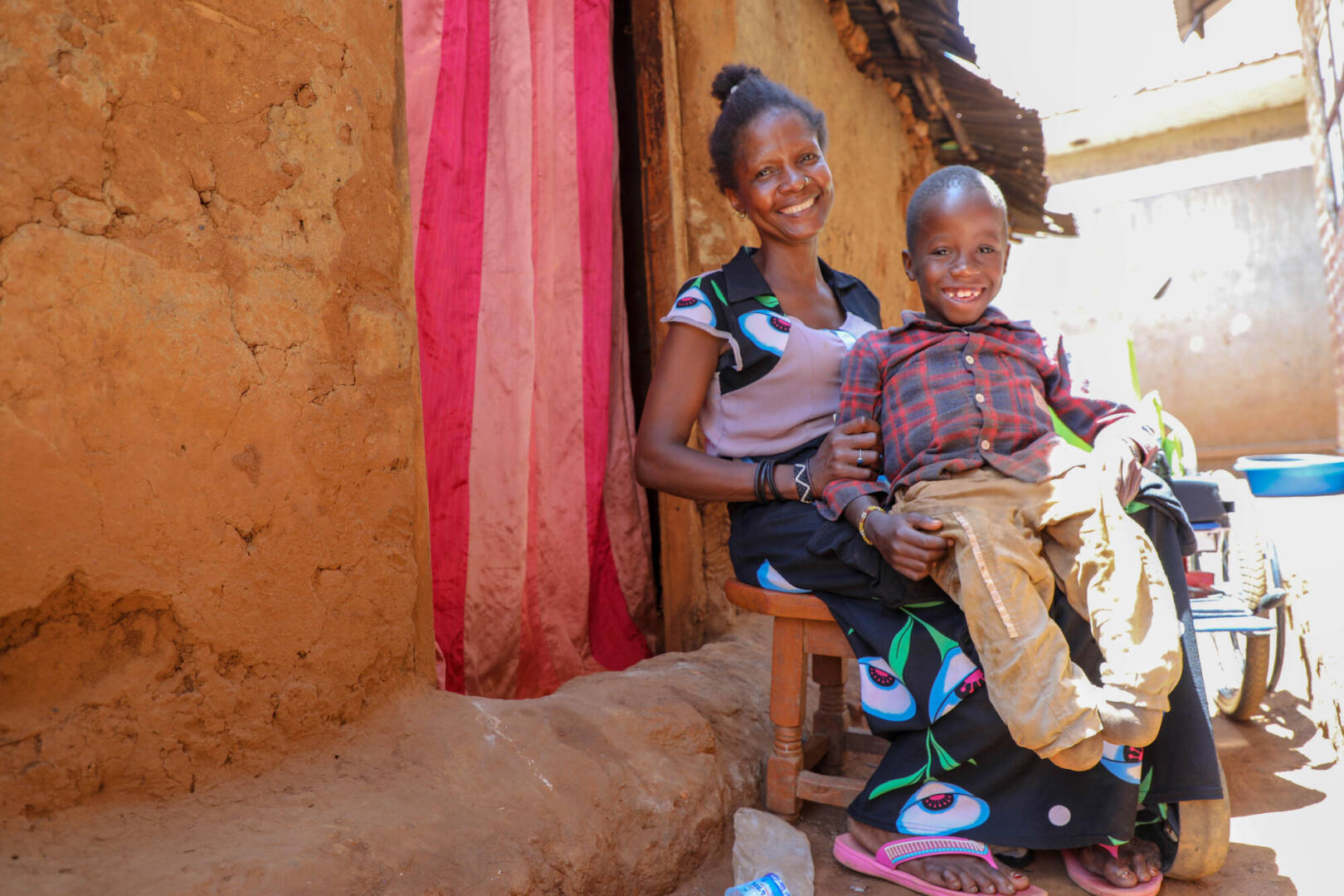
Building health and nutrition
The family’s reality began to change when Isma was 3 years old. A community volunteer contacted World Vision, recommending Isma to be admitted to an emergency feeding program. At 13 pounds, his weight was less than half of the average for his age group. Isma was admitted into World Vision’s community-based malnutrition program that facilitates malnutrition recovery within people’s own homes. The program includes resources and training so families can help keep their children healthy.
Florence and other mothers within the community gathered to cook nutritious meals using local foods they can easily find. The group brought various crops, and for 12 days, they prepared meals together for their children. In this program, children typically show signs of improvement over the 12-day period, and mothers leave knowing the meals they can make will help their children stay strong.
Before the training officially ends, children in the community program are also tested for malaria and worms to help ensure they have healthier futures.
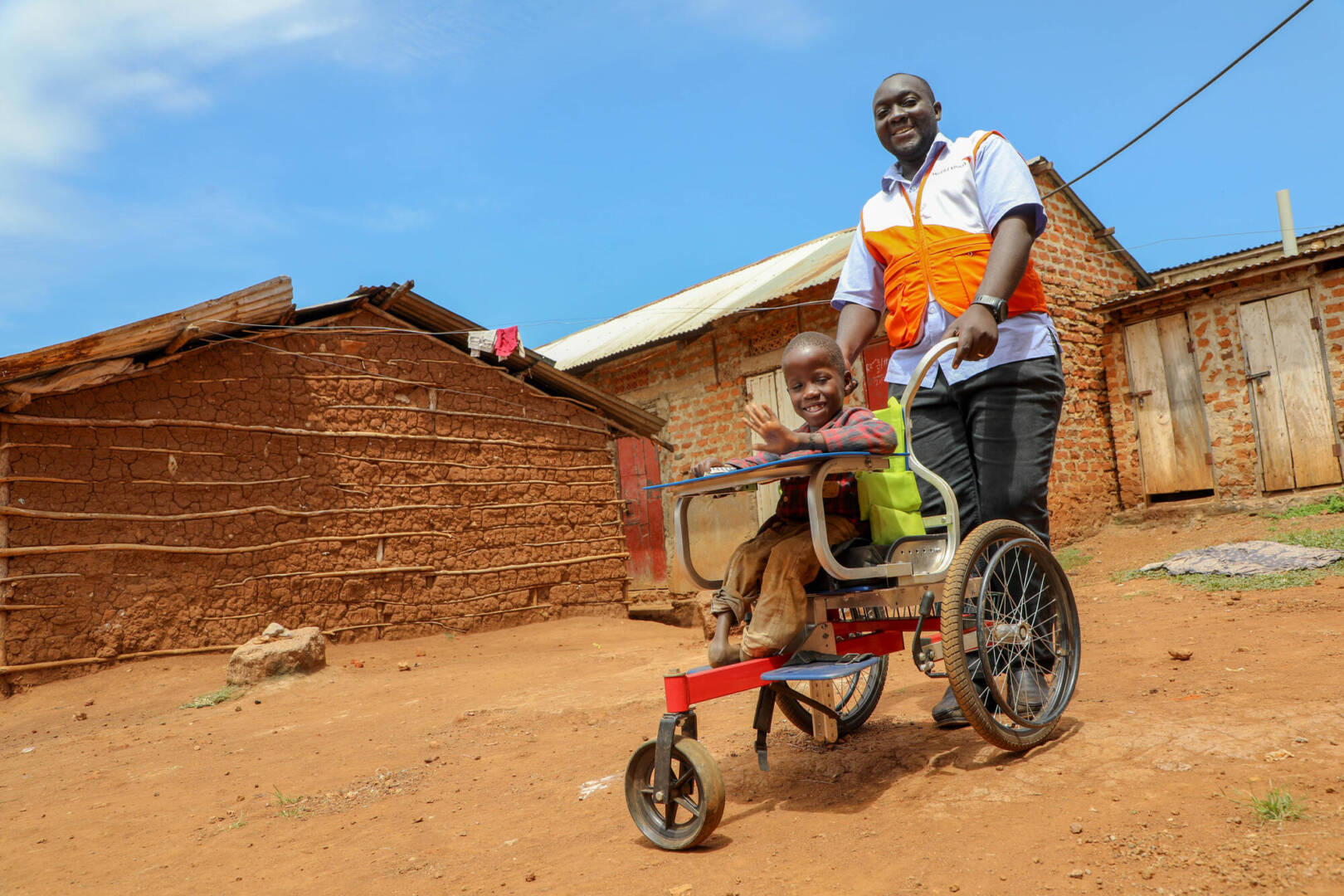
Enabled and mobile
Over the last 10 years, 89% of the severely malnourished children World Vision treated made a full recovery. Isma is part of this — his health was on the mend. And on top of this, Isma is more mobile after World Vision purchased a wheelchair and then connected with a partner organization who customizes wheelchairs to suit children’s needs. “With these wheels, I can move anywhere. I feel comfortable, and it is easy to move around with a tray I use for eating food,” says Isma.
Amy Van Drunen of World Vision’s U.S. staff contributed to this article.
